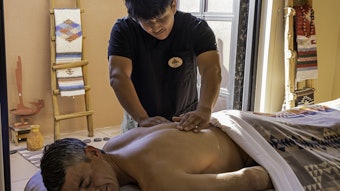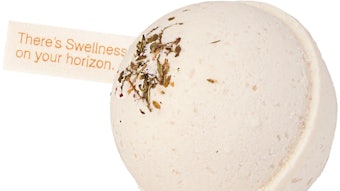A new study shows women suffering from polycystic ovarian syndrom, or PCOS, may find relief using acupuncture and exercise.
Acupuncture and exercise may bring some relief to the one in 10 women of childbearing age who suffer from a common endocrine disease called polycystic ovarian syndrome (PCOS). Women with the condition have elevated levels of androgen hormones—including testosterone—and often develop ovarian cysts, irregular menstrual cycles and infertility. A key feature of the disease is an increase in the high muscle sympathetic nerve activity. This regular constricting of blood vessels, which normally occurs during the body's fight or flight response to danger, can increase a woman's chances of developing diabetes and high blood pressure or having a heart attack or stroke.
The study, appearing online in a recent issue of the American Journal of Physiology-Regulatory, Integrative and Comparative Physiology, looked at 20 women who received either regular low-frequency electro-acupuncture on body parts commonly thought to be linked to the ovaries, took part in thrice-weekly moderate exercise or received no treatment at all over a 16-week period.
When comparing the sympathetic nerve activity before and after the study, researchers found noticeably decreased activity in the acupuncture and exercise groups compared with the control group. In the acupuncture group, the team also found significantly lower testosterone levels. High levels of this "male" hormone predict and have been thought to trigger chronic sympathetic nerve activity in women.
Those who received acupuncture also had regular menstrual cycles, while the exercise and control groups showed no change.
"The findings that low-frequency electro-acupuncture and exercise decrease sympathetic nerve activity in women with PCOS indicates a possible alternative non-pharmacologic approach to reduce cardiovascular risk in these patients," researcher Elisabet Stener-Victorin of the University of Gothenburg, Sweden, said in a news release. The authors noted that the study's small sample size was one of several limitations, and it may require more research into the issue before a definite conclusion could be drawn.
More information
The Polycystic Ovarian Syndrome Association has more about PCOS.
HealthDay News, July 9, 2009










